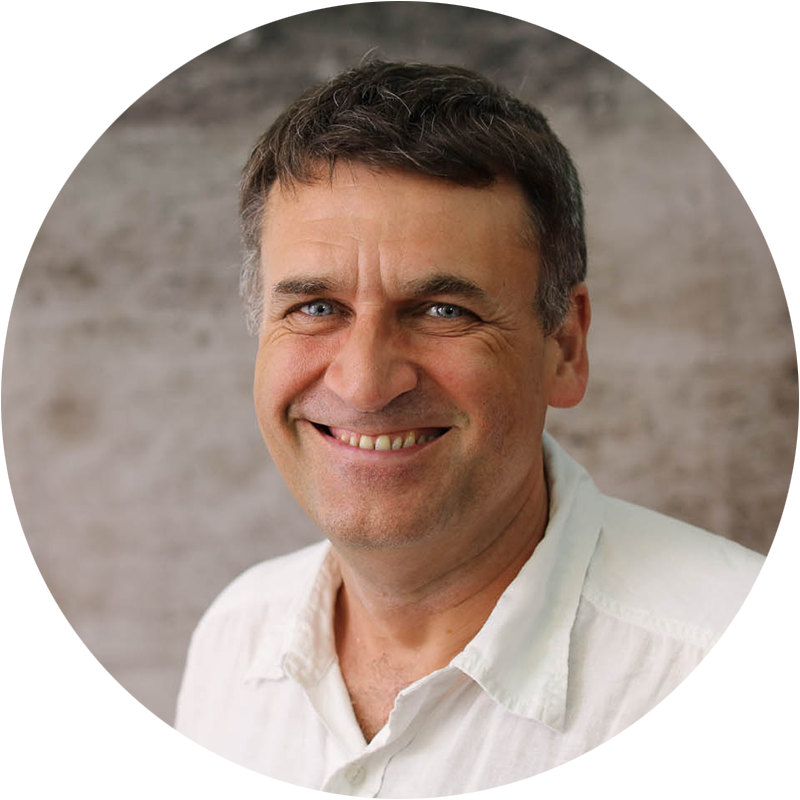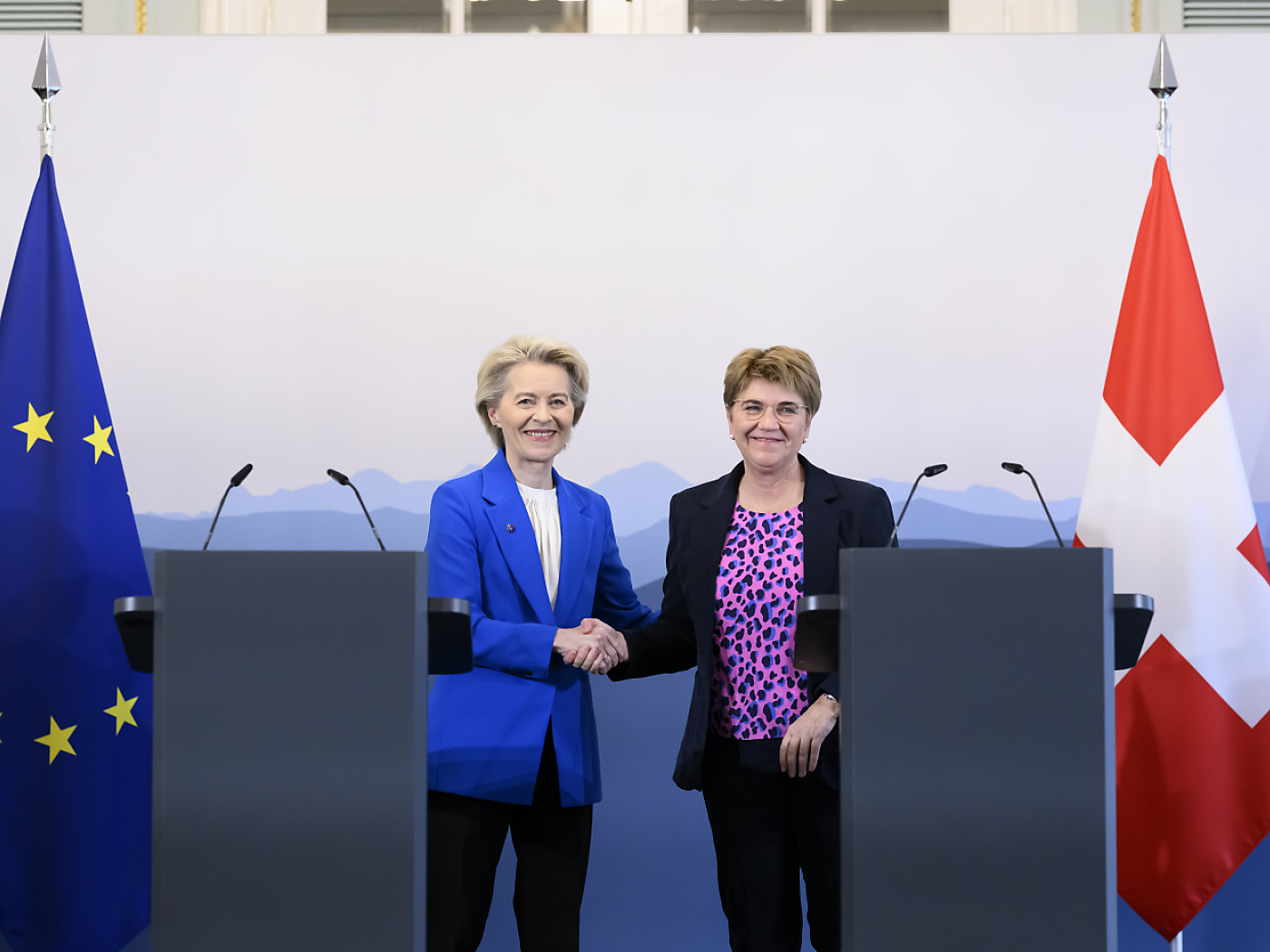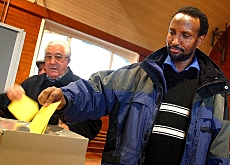Voting rights for foreigners gaining ground

When it comes to voting in Switzerland, non-Swiss nationals are normally excluded. But at the local and cantonal levels this situation is gradually changing.
At the end of April, the people of Geneva decided to grant foreign residents the right to vote – a right that already exists in several Swiss cantons.
Fifty-two per cent of the canton’s citizens said yes to a proposal to introduce voting rights for foreigners in local authority elections. Consequently, on April 25, Geneva found itself with an additional 80,000 electors.
But an accompanying proposal which would also have allowed foreigners to stand for election was rejected (by 53 per cent).
Despite that, the idea is gaining ground that non-Swiss nationals should be allowed a say, at least on local issues. It is significant that in 1993, 70 per cent of Genevans said no to a similar proposal, whereas now immigrants have political rights in all the French-speaking cantons, apart from Valais.
In Vaud a new constitution came into force in January 2004 enabling foreigners resident in Switzerland for more than ten years, and in the canton for at least three, to vote and stand for office at local level. Fribourg is preparing to follow suit, while Neuchâtel and Jura have a long tradition of inclusiveness.
Neuchâtel is probably an exception, not only in Switzerland but in Europe generally. Foreigners have been entitled to vote in local elections there since 1849.
In 2000, this right was extended to the cantonal level. The two cantonal representatives who sit in the Senate in Bern were therefore elected with the participation of foreign residents.
In Jura, foreigners have even more extensive rights. Since the canton was created in 1979, they have been able to vote on both local and cantonal issues and, since 2000, they can also be elected to local legislatures.
Differences
In German-speaking Switzerland, the situation is less favourable for foreigners. Only in two cantons – Appenzell Outer Rhodes and Graubünden – are they entitled to vote and stand for election. But it is left to individual local authorities to decide whether to grant them this right.
Meanwhile, in the cantons of Bern and Zurich similar proposals have been rejected.
Even in Appenzell Outer Rhodes, the inclusiveness policy has remained largely theoretical: of the half-canton’s 20 local authorities, only three have so far allowed foreigners to vote.
According to Roland Diem of the Foreigners’ Office in Appenzell Outer Rhodes: “The issue is probably not such a burning one here as in French-speaking Switzerland, and maybe it does not matter so much to the foreign community.”
But the general secretary of the Swiss Migrants’ Forum, Claudio Micheloni, disagrees. “Securing the right to vote for migrants without their having to change citizenship is the goal of all our activities,” he said.
Thomas Facchinetti, who is responsible for foreigners’ affairs in Neuchâtel, shares this view. He believes the right to vote is “a very important factor in integration”.
The evident discrepancy in Switzerland between the French- and German-speaking regions arises not from political considerations, but from different concepts of nationhood and citizenship, says Facchinetti.
“In French-speaking Switzerland, the French-inspired, republican model of citizenship predominates, and consequently political rights are a vital consideration. In German-speaking Switzerland, the Germanic model prevails, with its ethnic notion of community and citizenship.
Foreigners not interested?
But judging from the statistics for canton Neuchâtel – the only figures available in Switzerland – it is clear that foreign residents are hardly falling over themselves to vote in elections.
In the cantonal election on April 10, the turnout among the foreign community was 26 per cent, as opposed to 48 per cent among electors of Swiss nationality.
Far from being disappointed, Claudio Micheloni of the Migrants’ Forum finds this an excellent result.
“In Neuchâtel foreigners cannot stand for election,” Micheloni says. “The fact that there are no foreign candidates naturally has repercussions on the level of participation, but it would be quite wrong to accuse them of indifference.”
Facchinetti, too, says he is pleasantly surprised by the level of participation: “Previously, when foreigners were only permitted to vote at the local level, the turnout was much lower.”
According to Facchinetti, there are other factors which explain the lower turnout among foreigners.
“The composition of the electorate undoubtedly plays a very important part. The foreign population is younger and generally less well educated.”
He adds that non-participation is also more pronounced among Swiss people in these social and economic categories.
swissinfo, Daniele Mariani
Foreigners who have been resident for a certain number of years are entitled to vote in local elections in cantons Neuchâtel, Jura, Fribourg and Geneva.
In Neuchâtel and Jura they can also vote on cantonal issues.
In Jura, Fribourg and Vaud foreigners can stand in local elections.
In cantons Appenzell Outer Rhodes and Graubünden local authorities decide whether or not foreigners should be allowed to vote.
In European Union countries, the 1992 Maastricht Treaty granted citizens from other EU states the right to vote and run for office in local and European elections.
The new European Constitution reinforces the principle enshrined in the Maastricht Treaty, but grants no rights to non-EU citizens.
In national law, the situation regarding non-EU citizens varies from one country to another.
Some EU states, such as Portugal, grant voting rights to citizens of other countries, but only if such rights are reciprocated.

In compliance with the JTI standards
More: SWI swissinfo.ch certified by the Journalism Trust Initiative











You can find an overview of ongoing debates with our journalists here . Please join us!
If you want to start a conversation about a topic raised in this article or want to report factual errors, email us at english@swissinfo.ch.